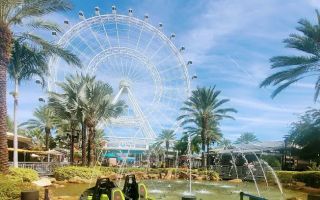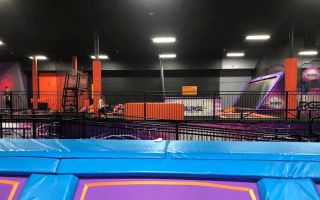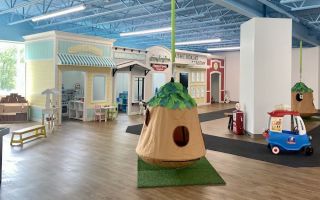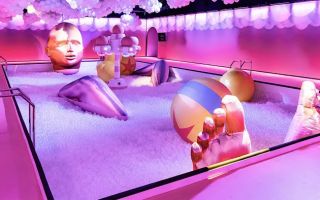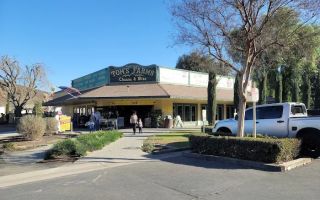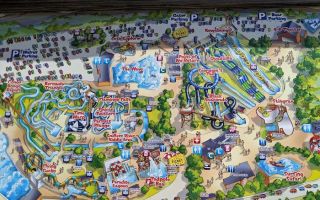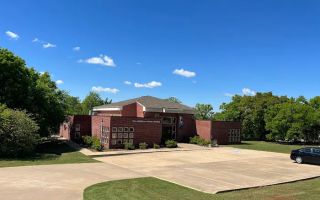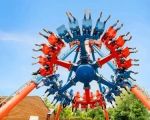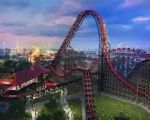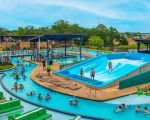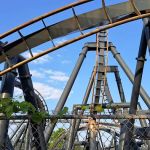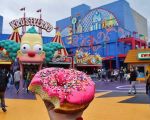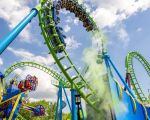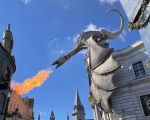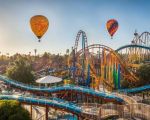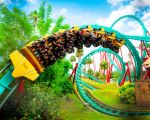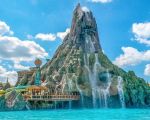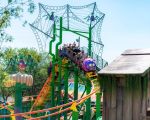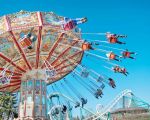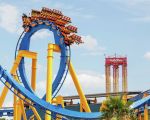How Do Amusement Park Rides Work? Understanding the Science Behind the Fun
- 1. The Science of Amusement Park Rides
- 2. How Roller Coasters Function
- 3. Safety Features and Engineering
- 4. Ride Design and Technology
- 5. Amusement Park Ride Innovations
- 6. Plan Your Next Adventure to Experience the Thrills
1. The Science of Amusement Park Rides
Amusement park rides have fascinated me for as long as I can remember. From the high-speed twists of roller coasters to the dizzying spins of Ferris wheels, there’s something thrilling about the physics behind each ride. But have you ever wondered: how do amusement park rides actually work? It's not just about the excitement and fun; there's a whole world of engineering, physics, and technology involved in creating these experiences. In this article, we’ll dive deep into the science behind amusement park rides and how they’re designed to keep you safe while delivering those unforgettable thrills.
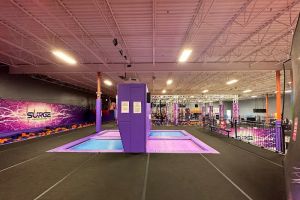
Surge Adventure Park
24 E 33rd St, Edmond, OK 73013, USA
1.1. The Basics of Ride Mechanics
At their core, amusement park rides rely on basic principles of physics, such as force, motion, and gravity. Whether it’s a roller coaster or a carousel, each ride operates on a set of mechanical principles. When designing these rides, engineers have to take into account factors like the velocity of the ride, acceleration, centrifugal force, and how these forces affect the riders' bodies. It's like riding a roller coaster that simulates the forces of gravity, but in a controlled environment to ensure safety.
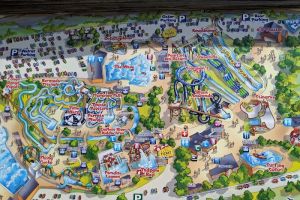
Noah's Ark Waterpark
1410 Wisconsin Dells Pkwy, Wisconsin Dells, WI 53965, USA
2. How Roller Coasters Function
Roller coasters are perhaps the most iconic amusement park ride, and they are designed to give you that adrenaline rush you crave. I’ve always been curious about how roller coasters manage to deliver such a thrilling experience without being dangerous. The secret lies in the precise mechanics and engineering that go into their design.
2.1. The Role of Gravity and Potential Energy
Most roller coasters begin with a steep climb to gain potential energy. As the coaster car climbs to the top of the first hill, it stores up energy due to its height. When the car descends, gravity converts this stored potential energy into kinetic energy, which propels the ride downwards and through the rest of the track. The thrill comes from the transition between potential and kinetic energy, with the forces on your body being carefully controlled by the ride's design.
2.2. How Speed and G-Forces Are Controlled
The speed of a roller coaster is crucial to delivering the thrill but maintaining safety. Engineers carefully calculate the speed at which the coaster should travel, ensuring that the g-forces (the force exerted on your body) are kept within safe limits. Too much speed could be dangerous, but too little might not provide enough excitement. That’s why rides like the Kingda Ka at Six Flags, which reaches 128 mph, are designed with precise mechanisms to gradually slow the coaster before it reaches a peak.
3. Safety Features and Engineering
When it comes to amusement park rides, safety is always the top priority. I've been on some high-speed rides that had me screaming in excitement, but I also felt safe knowing that every element of the ride has been carefully engineered for my protection. Here’s how amusement parks ensure that their rides are both thrilling and secure:
3.1. Restraint Systems
The first line of defense on any high-speed ride is the restraint system. Roller coasters, for instance, use over-the-shoulder harnesses, lap bars, or even full-body enclosures to keep riders secure. These systems are rigorously tested and designed to ensure that riders stay safely in place throughout the ride. The engineering behind restraint systems is incredibly precise, as they need to accommodate different body sizes while ensuring that no one gets jostled out of their seat.
3.2. Ride Inspections and Maintenance
Amusement parks carry out regular safety inspections and maintenance checks on their rides. Every ride is checked for any wear and tear, malfunctioning components, or other potential hazards. Maintenance teams use sophisticated tools to ensure that all mechanical elements of the ride, from the track to the braking system, are functioning correctly. For example, when I visited a local park, I learned that roller coasters undergo a full inspection every night, ensuring they are safe for the next day's visitors.
4. Ride Design and Technology
Behind every great ride is a team of designers and engineers who bring the thrill to life. The combination of traditional engineering techniques and modern technology allows theme parks to push the limits of what rides can do. Here are some technological advancements that make rides more exciting:
4.1. Computer-Aided Design (CAD)
Designing a ride is no longer done with a pencil and paper. Engineers now use computer-aided design (CAD) software to create intricate models of the rides. This allows them to simulate how the ride will function, testing everything from the speed of the coaster to the forces on riders. CAD technology has revolutionized ride design, enabling engineers to create safer, faster, and more thrilling experiences.
4.2. Virtual Reality (VR) and Interactive Rides
Some parks are now integrating virtual reality (VR) into their rides. VR allows riders to experience an immersive, digital world while still riding a physical coaster or attraction. For example, I recently experienced a roller coaster where VR goggles added an extra layer of excitement by immersing me in a story while the physical motions of the coaster made the experience feel real. These innovations are the future of amusement park rides, creating new, interactive experiences for visitors.
5. Amusement Park Ride Innovations
The amusement park industry is always evolving, with new technology and innovations pushing the boundaries of what rides can do. From completely new ride concepts to safety features that protect guests, these innovations keep the amusement park experience fresh and exciting.
5.1. Magnetic Launch Systems
Traditional roller coasters rely on chain lifts to get to the top of the hill, but new innovations like magnetic launch systems are changing the way roller coasters work. These systems use powerful magnets to propel the train forward at incredible speeds without the need for a steep incline. I recently rode a coaster with this feature and was amazed at how quickly the ride took off, creating a much more intense experience right from the start.
5.2. Themed Rides with Storytelling
Another exciting innovation is the growing trend of immersive, themed rides. These attractions incorporate intricate storytelling, elaborate sets, and high-tech effects to make you feel like you’re part of the adventure. Some parks are now designing rides that blend virtual reality, physical movement, and immersive storytelling, creating unforgettable experiences. I’ve always loved the interactive rides that combine the thrill of a coaster with a deeper narrative, making each ride more than just a physical experience.
6. Plan Your Next Adventure to Experience the Thrills
After learning how these incredible rides work, it’s easy to see why amusement parks are such a thrilling experience. Whether you're into high-speed roller coasters, immersive VR rides, or classic Ferris wheels, there’s something for everyone. If you're ready to experience the latest innovations and thrilling adventures, consider planning a visit to your favorite amusement park. For a fun-filled day with cutting-edge rides and unforgettable experiences, visit Hickory Dickory Park where you can enjoy the latest attractions and rides.

